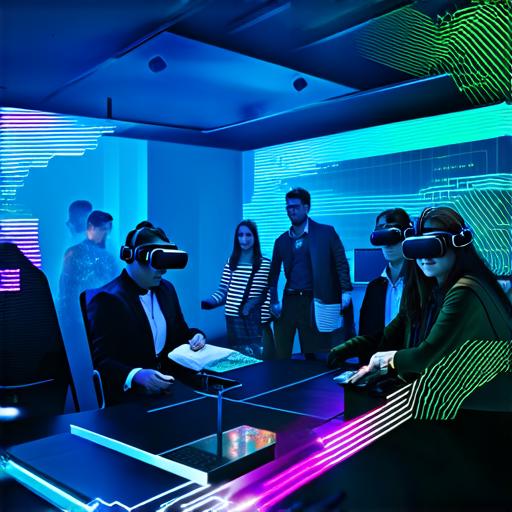Virtual reality (VR) technology has come a long way since its inception, and it’s now possible to create immersive experiences that feel as real as the real thing. However, the concept of virtual representation raises some interesting questions about the role of technology in society.
Virtual Representation: What Is It?
Virtual representation refers to the use of computer-generated images or avatars to create digital representations of people or objects. These virtual representations can be used in various contexts, including gaming, education, healthcare, and more.
For example, in the gaming industry, virtual representation allows players to customize their characters and create avatars that look and act like them. This creates a more personalized experience and can make games more engaging and immersive.
In education, virtual representation can be used to simulate real-world scenarios, such as surgeries or space missions. This allows students to learn by doing and gain hands-on experience in a safe environment.
Virtual representation is also used in healthcare to create realistic simulations of surgical procedures or medical interventions. This allows doctors and nurses to practice their skills and improve patient outcomes.
Is Virtual Representation a Valid Concept?
The concept of virtual representation raises some important questions about the role of technology in society. Some argue that it’s a valid concept that has the potential to revolutionize various industries, while others question its ethics and impact on human interactions.

Pros of Virtual Representation
One of the main advantages of virtual representation is that it allows for more personalized experiences. By creating digital representations of people or objects, we can customize these representations to suit our needs and preferences. This can create a more engaging and immersive experience, especially in industries such as gaming and education.
Cons of Virtual Representation
However, virtual representation also raises some important ethical concerns. For example, it can lead to a disconnection between people and reality, as they become more reliant on virtual representations of the world around them.
Virtual representation can also create a false sense of reality, as people may be tricked into believing that what they’re experiencing is real. This can have negative consequences for mental health and well-being, as people may struggle to distinguish between what’s real and what’s not.
Case Studies and Personal Experiences
To better understand the pros and cons of virtual representation, let’s consider some real-life examples.
Research and Experiments
There is a growing body of research on the impact of virtual representation on various aspects of human behavior and cognition. One study found that people who spent too much time in virtual environments reported feelings of disconnection from reality and struggled to distinguish between what was real and what was not.
The Role of Expert Opinions
To gain a better understanding of the pros and cons of virtual representation, it’s important to consider the opinions of experts in various fields.
Real-Life Examples to Illustrate Points
To illustrate the points being made, let’s consider some real-life examples.
Thought-Provoking Ending
Virtual representation is a complex concept that raises many interesting questions about the role of technology in society. While there are certainly pros and cons to this emerging technology, it’s important to consider the ethical implications and potential impact on human behavior and cognition.
As virtual reality continues to advance, it will be fascinating to see how it is adopted and integrated into various industries. Will it revolutionize the way we live our lives, or will it lead to a disconnection from reality? Only time will tell.
